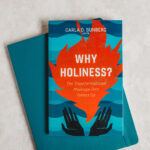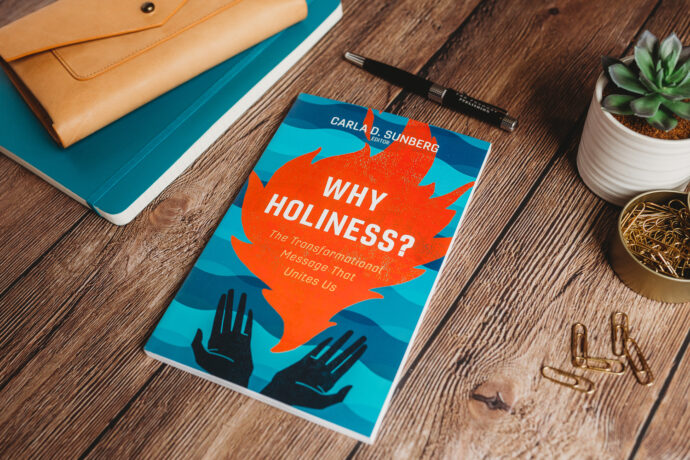I just concluded my latest membership class, and it was the largest and most diverse membership class I’ve led yet! We had multiple former Catholics, former Baptists, Independent Fundamentalists, and even a Mennonite family. In our classes we spend more time discussing the Articles of Faith for the Church of the Nazarene than anything else. Church polity and other explanations are driven by our theology.
One man in the membership class with a self-proclaimed eclectic church background asked me a pointed question: “I’m totally getting the ‘big tent’ thing we talked about, so why hasn’t the Church of the Nazarene grown more exponentially in its short history? Unlike so many denominations I’ve been in, it seems like the Nazarenes work hard to create space for others rather than shore up their borders. Why hasn’t this translated into swifter growth?” It was a hard question with an answer I surely fumbled. But it was an encouraging question because it revealed the appealing nature of our theology. Former Baptists and former Catholics all felt like they had a home in the Church of the Nazarene!
Every time I lead a membership class, the longest conversation we have surrounds Article X on sanctification. The questions from recovering fundamentalists are usually something like, “So you guys really believe we can be freed from the grip of sin?” The questions from former Catholics usually go, “So holiness isn’t a prerequisite for salvation? It’s a gift?” These are oversimplifications, certainly, but after wading through faith jargon and getting to the heart of the Article of Faith on sanctification, Christians old and new from various traditions find so much freedom in our expression. Every membership class reminds me that my congregation cares about holiness. The expression and articulation of holiness impact how my congregants live.
Every membership class reminds me that my congregation cares about holiness. The expression and articulation of holiness impact how my congregants live.
A little over a year ago, Dr. Carla Sunberg asked that I write a chapter for her book Why Holiness?. With some hesitation I told her I would. Looking at the list of other contributors, I wondered what I’d have to add to this conversation that they wouldn’t already have covered. The other contributors are strong theologians and writers. I was humbled to have a place at the table with them.
As I began to reflect on the subject of contemporary expressions of holiness, it became abundantly clear that we need to keep having conversations about holiness. As the Church of the Nazarene’s General Assembly in 2017 revealed, we are passionate about what we mean when we discuss the idea of holiness. While the resolution to change Article X failed on the floor, it led to some incredibly important conversations: Is our current expression satisfactory? Do we need to update the language? Do we actually need a complete rewrite?
So, why Why Holiness?
Not because Why Holiness? seeks to provide a comprehensive synthesis of entire sanctification. Good luck finding that!
Not because Why Holiness? claims to have all the answers regarding holiness.
Not because Why Holiness? is the final word on holiness.
Why Why Holiness?
Because Why Holiness? seeks to be a launching point. Why Holiness? seeks to encourage conversation and to serve as a platform. Why Holiness? can serve as a wonderful primer for you and your church. There is likely a group within your congregation that would love to do a book study of this text.
Because Why Holiness? is accessible. The biggest gripe in membership classes is that Article X on sanctification isn’t accessible. It’s hard to comprehend. While academic, Why Holiness? is written so laity can dig deep.
Because Why Holiness? isn’t one voice. With multiple authors, this book allows the reader to approach holiness from various angles. We each take a different tack.
Here’s the thing, friends: it isn’t just our General Assembly delegates who want to discuss holiness and its implications on our lives. It isn’t just fourth-generation Nazarenes, theology professors, and pastors who see the intrinsic value of holiness and its articulation. Holiness is a basic Christian principle. Let’s keep wrestling with it together.
 In Why Holiness?, Dr. Carla Sunberg, Danny Quanstrom, and an international group of gifted theologians explore how practices like intentional spiritual formation, engaging persons on the margins, and dialoguing with the past help us answer the question of why holiness remains essential to the life and health of the church. Why Holiness? is available for purchase on TheFoundryPublishing.com.
In Why Holiness?, Dr. Carla Sunberg, Danny Quanstrom, and an international group of gifted theologians explore how practices like intentional spiritual formation, engaging persons on the margins, and dialoguing with the past help us answer the question of why holiness remains essential to the life and health of the church. Why Holiness? is available for purchase on TheFoundryPublishing.com.





0 Comments